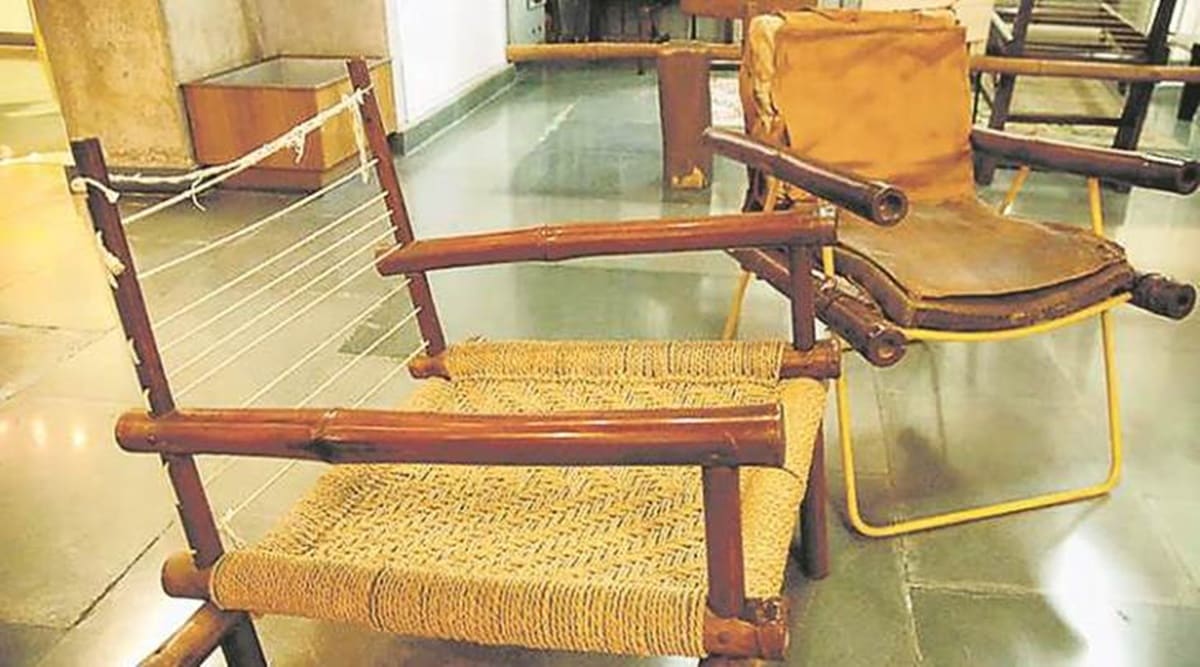 The other items set to go under the hammer are an executive desk with rectangular top upholstered in green leather, with side legs and a side box opening with three drawers. (Representational Image)
The other items set to go under the hammer are an executive desk with rectangular top upholstered in green leather, with side legs and a side box opening with three drawers. (Representational Image) Chandigarh’s heritage furniture are set to go under the hammer yet again in France, with as many as five items to be auctioned for around Rs 38 lakh.
The items to be auctioned on February 22 include a pair of stools, with a reserve price between 4,500-5,000 Euros, down chairs pair of profiled and varnished teak armchairs, with a reserve price between 4,000-6,000 Euros, a 1955 pair of profiled and varnished wooden armchairs, with a reserve price between 7,000-10,000 Euros.
The other items set to go under the hammer are an executive desk with rectangular top upholstered in green leather, with side legs and a side box opening with three drawers, which has a reserve price between 8,000-10,000 Euros and a Jeanneret designed dining table in solid teak, with a reserve price between 14,000-18,000 Euros.
Member of the Heritage Protection Cell Ajay Jagga, in a letter to Union Minister for External Affairs S Jayashankar, Ambassador of India to France Jawed Ashraf and First Secretary (Consular and Political) at Indian Embassy in France Avinash Kumar Singh, informed the officials about the auction.
“I am humbly approaching our mission to step in with the help of local law enforcing agencies and initiate an inquiry into the auction of Chandigarh heritage items and probe as to how these banned items have gone beyond the territory of India, in violation of the MHA orders issued on February 22, 2011. Auction is on February 27 in France,” he said.
Jagga said that the representation is filed in accordance with the Article 51A of the Constitution of India, which says, “It shall be the duty of every citizen of India—(f) to value and preserve the rich heritage of our composite culture; (i) to safeguard public property.”
He added that “a research done by a Washington-based company a few years back said that illegal trade in artefacts is one of the most lucrative criminal enterprises estimated at USD six billion a year. The auction of Indian heritage items by by foreign houses is at an all time high, causing huge losses to the nation’s prestige apart from the violation of ban and as such, it is appealed that our embassy may be alerted and be asked to help in initiating an inquiry.”
Jagga specified that “UNESCO may also be approached as it is fighting a battle to combat trafficking of cultural objects and India is a signatory of the 1970 UNESCO Convention on the Means of Prohibiting and Preventing the Illicit Trafficking in Cultural Property. It appears that heritage continues to be of least priority for government agencies like the ASI.”